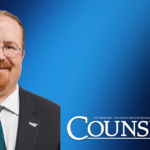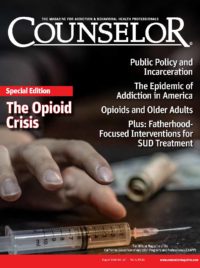Share
I recently read The United States of Opioids: A Prescription for Liberating a Nation in Pain (2019) by Harry Nelson, which describes our nation’s opioid crisis, its origins, and hope for resolving it. Nelson is the founder of the Behavioral Health Association of Providers (BHAP), a national membership organization that is leading and unifying the voice of addiction-focused treatment programs at the national level. I have come to know him as a colleague and as a friend and believe him to be one of the most important writers and lecturers changing the way our culture views addiction.
Very early into the book I realized a couple of things almost immediately. First, Nelson makes a distinction between a “crisis” and an “epidemic.” He writes that the definition of “epidemic” describes an infectious disease, whereas “crisis” is defined as, “a time of intense difficulty, trouble or danger” (Nelson, 2019). Why is this distinction important? Well, it is important because an epidemic is something that you cure; you end it through a series of concentrated, focused steps (e.g., vaccines and quarantines). It also has an identified source and an identified solution. This type of thinking leads the public to believe there is a silver bullet somewhere that can end this epidemic. It teaches that if we limit the supply of opioids and punish pharmaceutical companies that all will return to some state of “normal,” a pre-epidemic place to return to.
I align my philosophy with Nelson’s; I do believe we are facing a crisis, one that has been ongoing for a long time. I am not just referring to opioids, but also to the disease of addiction. The opioid crisis is an opportunity to inform people about the disease of addiction and to reduce stigma attached to it, but we must be leery of attaching a single drug to this crisis, because when we start to see a drop in deaths attributed to opioids, we will have declared an “end” to the crisis and will lose focus on prioritizing addiction.
The ravages of the opioid crisis have brought the disease into mainstream culture. Although addiction has never been a disease that afflicts only “those kind of people,” there has never been a time in our country’s history when the public actually understands that this disease affects all people, not just “bad people.” There should not be one more death caused by the treatable disease of addiction—life is precious, and deaths devastate entire families and communities.
Nelson expresses this sentiment in the other outstanding message I found in the very first pages of his book. His thoughtfulness in describing people in recovery can change our nation’s culture regarding people with addiction. He states that he avoids using the word “addict” due to it inherently stigmatizing people in recovery. He uses the term “people in recovery from addiction” to identify addicts living lives of sobriety. I use the term “people suffering from addiction” when I speak about people not yet in recovery. Changing the nomenclature regarding people with addiction changes our cultural perception and helps people understand that this is a disease of suffering, not a moral choice or a character flaw. Our words tell the public our stories, and we can make these words meaningful every day.
References
- Nelson, H. (2019). The United States of opioids: A prescription for liberating a nation in pain. Charleston, NC: Forbes Books.
About Me
Pete Nielsen is the President & Chief Executive Officer for the California Consortium of Addiction Programs and Professionals (CCAPP), CCAPP Credentialing, CCAPP Education Institute, and the National Behavioral Health Association of Providers (NBHAP). CCAPP is the largest statewide consortium of addiction programs and professionals, and the only one representing all modalities of substance use disorder treatment programs. NBHAP is the leading and unifying voice of addiction-focused treatment programs nationally. Mr. Nielsen has worked in the substance use disorders field for 20 years. In addition to association management, he brings to the table experience as an interventionist, family recovery specialist, counselor, administrator, and educator, with positions including campus director, academic dean, and instructor.
Mr. Nielsen is the secretary of the International Certification and Reciprocity Consortium and the publisher for Counselor magazine. He is a nationally known speaker and writer published in numerous industry-specific magazines. Mr. Nielsen holds a Master of Science in Counseling Psychology and a Bachelor of Science in Business Management.











 Counselor Magazine is the official publication of the California Association of Addiction Programs and Professionals (CCAPP). Counselor offers online continuing education, article archives, subscription deals, and article submission guidelines. It has been serving the addiction field for more than thirty years.
Counselor Magazine is the official publication of the California Association of Addiction Programs and Professionals (CCAPP). Counselor offers online continuing education, article archives, subscription deals, and article submission guidelines. It has been serving the addiction field for more than thirty years.